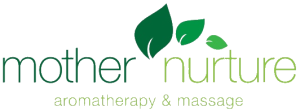
Winter is here and in Melbourne we definitely feel the temperatures drop and the days get shorter.
Do you dread this time of year, entering winter full of trepidation, expecting a merry go round of illnesses in the family?
Would you like to be empowered to do more to enhance the health of yourself and your family?
Essential oils can help you do this. I have been so grateful to have these aromatic resources at my fingertips since before I had children. Nowadays my kids come to me as soon as they feel a sore throat or a little off colour so we can implement some treatment straight away.
In this article I highlight why essential oils can be a great addition to your toolkit during winter (or any season actually!). I discuss some of the best readily available essential oils that can be used to prevent and treat common colds and easy, effective methods of application.
Over the years I have found there are 4 main areas essential oils can help during cold and flu season:
- supporting the immune system
- treating symptoms of colds and flu
- reducing the severity and duration of infections
- helping prevent the spread of infections to other members of the family
Top essential oils for winter
It’s not just for me to say! Much research has been done showing the antibacterial, antiviral and antiseptic power of various essential oils and their constituents. Most essential oils have some degree of antibacterial activity. Numerous essential oils have been shown to be excellent air antiseptics. This means when dispersed into the air they destroy airborne moulds and bacteria within a short period of time. This is a safe and effective way we can use essential oils to help purify the air and reduce spread of infection. Some of the most effective air antiseptics include Citrus oils, Scotch Pine, Cypress, Clove, Tea Tree and Rosalina.
My top go-to essential oils during winter include:
- Citrus oils (such as lemon, sweet orange, mandarin, lime)
Citrus oils are wonderful air antiseptics and can also help to lift our mood (much needed if you have a sick household!).
- Tea tree (Melaleuca alternifolia) or Rosalina (Melaleuca ericifolia, also known as Sweet Tea Tree)
To help treat symptoms such as a sore throat and reduce spread of infection. Rosalina has a more pleasant scent, and is gentle and calming, making it more suitable for young children.
- Eucalyptus (Eucalyptus radiata or Eucalyptus globulus)
Great as a decongestant, tonic and for aching bodies -
Lavender (Lavandula angustifolia)
To gently treat aches and pains, and improve sleep.
- Fragonia (Agonis fragrans) and Kunzea (Kunzea ambigua)
Two amazing Australian essential oils; useful for sore throats, blocked noses and aching muscles
- Ginger or Black pepper
Warming spice oils are great for muscular aches and as a tonic when feeling fatigued.
With the exception of Eucalyptus these essential oils are gentle enough to use for the whole family. Eucalyptus has many properties making it very useful for respiratory infections, but lower dilutions need to be used for young children.
Very strong anti-infectious essential oils such as Red Thyme, Clove, Oregano and Cinnamon can also be useful but need to be used with caution and are not recommended for use with children.
Applications
As the main focus is on alleviating respiratory symptoms and purifying the air, one of the most effective and safe methods of application is vaporising or inhaling the essential oils. Try the following simple applications:
Vaporising
To help purify the air and prevent spread of infection.
Use 4-6 drops of essential oil in a vaporiser or “oil burner”. There is a wide variety of vaporisers and diffusers available now so you may need to check the manufacturer’s directions for use. Otherwise an easy alternative is to drop the essential oils into a bowl of warm water.
Try: Lemon 4 drops + Tea Tree 2 drops or Sweet orange 4 drops + Rosalina 2 drops
Inhalation
To clear stuffy heads and treat infection.
Use 1-2 drops in a bowl of warm water and inhale (for older children & adults)
1-2 drops of essential oils on a tissue and inhale. Tissue can be tucked into clothing and inhaled throughout the day. Aroma inhalers are a great option.
2-3 drops in the corner of the shower recess; inhale deeply while having a warm shower.
Try: Lavender 1 drop + Eucalyptus radiata or Tea tree or Rosalina 1-2 drops
Aromatic Baths
Baths can be so beneficial to help reduce symptoms of cold and flu. Adding essential oils to a warm bath will allow vapours to be inhaled as well as absorbed through the skin. Baths can provide immune support, relaxation and relief for aching muscles.
Some of my favourite winter bath blends are below. ALWAYS disperse the essential oils first into 1 tablespoon of dispersant/solubiliser, vegetable oil or unscented shower gel before adding to bath. Mother Nurture’s Coughs & Colds aromatic bath blend is great to have on hand.
| TREATMENT | ADULTS & CHILDREN > 12 years | CHILDREN 2 – 12yrs |
|
Colds & flu Immune support
|
Tea tree 3 drops Eucalyptus radiata 3 drops True Lavender or Lemon 2 drops |
Tea tree/Rosalina 2 drops Eucalyptus radiata 1 drop True lavender or sweet orange 1 drop |
| Aching, tired muscles |
Eucalyptus or Kunzea 3 drops Peppermint 1 drop True Lavender 2 drops Ginger 2 drops |
True Lavender 2drops Ginger 2drops
|
|
Reduce stress & improve sleep
|
True Lavender 3drops Fragonia or Geranium 2drops Sweet orange or Mandarin 3drops
|
True lavender 2drops Mandarin or sweet orange 2drops |
Remember therapeutic effects will only be gained from true, quality essential oils. If you are ever unsure it is best to contact a qualified aromatherapist, especially important when treating babies and children.
And more tips!
Of course, there are many factors involved in maintaining our health. Here’s a few more tips for enhancing winter well being:
- Try to get out of the heated house or office and breathe in some fresh air every day.
- Whilst probably still cold, if the sun is out, open up doors and windows of the house for a few hours.
- Our water intake usually drops off during winter. I often switch to drinking warm water instead, adding a little lemon juice to spice it up.
- One of the best ways to prevent the spread of germs is to wash your hands (something I am well aware of as a nurse). Teach children to wash their hands well before eating. Make it a habit and then hopefully they will continue this when at school and kinder etc.
